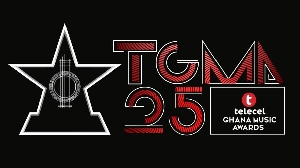Opinions of Sunday, 17 June 2012
Columnist: Obosu-Mensah, Kwaku
Ghana's Food and Drugs Board is Part of the Problem
Almost every month, officials of Ghana's Food and Drugs Board (GFDB) confiscate fake drugs and food supplements. That means the Board is doing a good job in protecting Ghanaians from the myriad of counterfeit drugs and unwholesome food and food supplements that some unscrupulous people try to sell to Ghanaians. For their vigilance, I commend officials of the Board.
However, the attitude and inefficiency of the Board in handling applications from Ghanaians who want to market genuine drugs and food supplements is a huge problem. Let me narrate my own predicament. I succeeded in convincing a manufacturer in the US to supply me a food supplement to be sold in Ghana. Then I went on the website of GFDB for the necessary registration information. On March 1, 2012, I provided all the documents GFDB requested for and paid the required fee of US$1,500. When my nephew submitted the application he was told by officials of GFDB that he will be notified after the product had been tested. When he enquired about time frame, that is, when he asked GFDB officials when we will hear from them, they could not tell him. He was then told that if he does not hear or read from GFDB he should call to check. Again, no time frame was given.
Approximately two weeks after the submission of the application, I received a letter signed by the Chief Executive Officer. The letter noted, among others, that "evaluation of the documentation is on-going and details of the registration will be communicated to you in due course."Yes, in due course - no set date.
A month later, my nephew went to the offices of GFDB only to be told that he should check another time. Three and a half months after the application was submitted (June 15), we have still not heard anything from GFDB. It is irritating that GFDB was quick in taking my US$1,500 but is hesitant to work on my application. Please note that my main concern is that no time frame is given here. GFDB has been testing food supplements and drugs for quite some time so it should be able to tell prospective entrepreneurs when to expect response to their applications.
The most important responsibility of GFDB should be helping genuine entrepreneurs to establish businesses in Ghana. Unfortunately, GFDB sees clamping down on counterfeit products as their main responsibility. In fact, many people engage in illegal businesses when they are prevented by government officials from engaging in legal businesses. By its actions and inactions, Ghana's Food and Drugs Board is really contributing to the counterfeit drugs and unwholesome food and food supplements on the Ghanaian market.
Minutes before I wrote this article, I went to the website of GFDB. Almost every current news item on their website is about counterfeit drugs and unwholesome food items and supplements confiscated by the Board. Less prominent on their website is information that will assist genuine entrepreneurs to register their products.
Some months ago, GFDB confiscated cooking oil marked as vegetable oil. The Board notified the public to stop buying the product because it was pig fat, not vegetable oil. I am sure that it did not take GFDB three months to test the confiscated product. So why does it take more than three months to test genuine drugs and food supplements? I know that it takes some time to test substances but the issue here is lack of information on the part of GFDB.
Yes, GFDB is doing a good job tracking down counterfeit products but there are so many counterfeit products on the market because GFDB prevents entrepreneurs from selling genuine products in Ghana. Until GFDB pays equal attention to potential and genuine entrepreneurs, many people will sell counterfeit and unapproved items on the Ghanaian market.
To improve upon the good job that the Board is doing, I make the following suggestions:
One, GFDB should give entrepreneurs who apply for permission to sell products on the Ghanaian market a time frame they should expect response. It is very unprofessional to tell applicants to "contact us if you don't hear from us."
Two, if GFDB does not have the capacity to quickly tests substances it should contract drug and food testing to several laboratories in Ghana, and if possible in foreign countries. For example, GFDB can contract testing of all drugs and food supplements originating from the United States of America to a reputable laboratory in the US. The potential importer pays for the testing
Three, GFDB should create a special unit responsible for dealing with business applications, in order to encourage genuine entrepreneurs to invest in the country. In the absence of genuine products, consumers are left with adulterated ones, often marketed in the underground economy.
I hope GFDB will take this article in good faith, and improve upon its services to Ghanaians and others interested in doing business in Ghana.
Kwaku Obosu-Mensah












